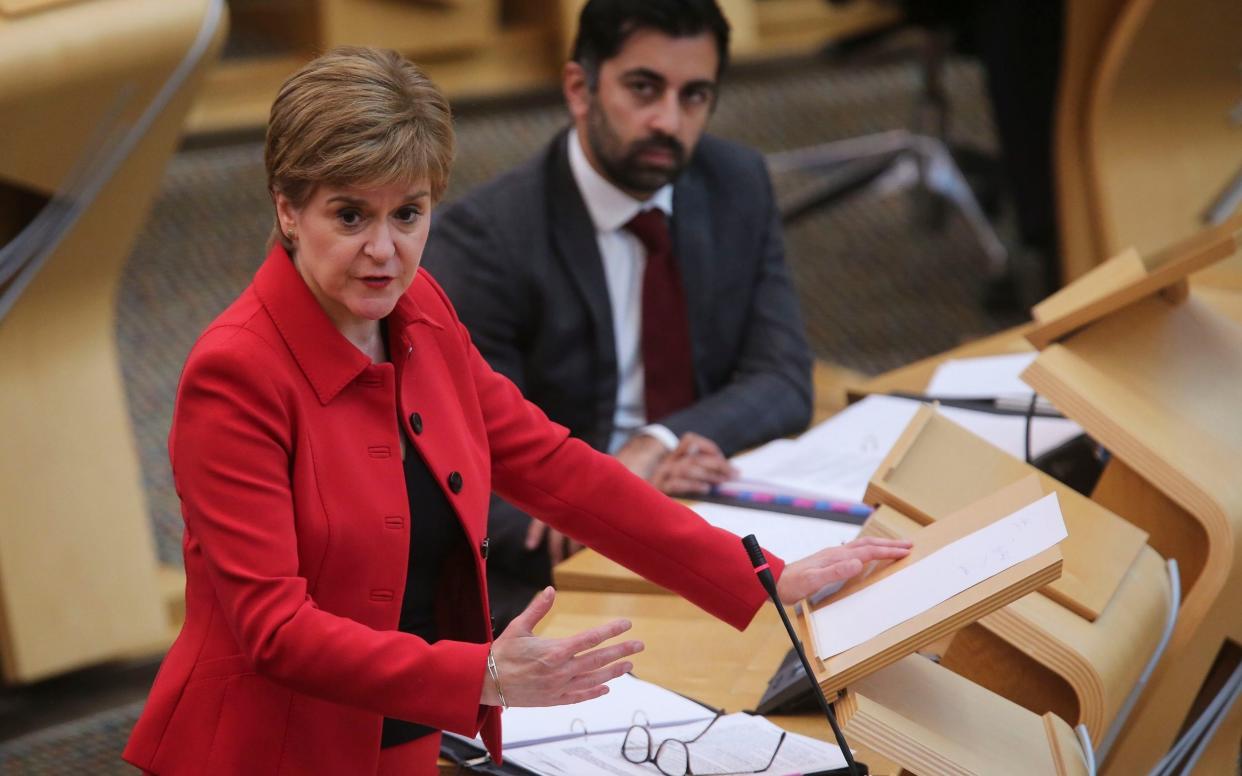Scots may be forced to show vaccine passports to enter pubs with dance floors

Scots may be forced to present vaccine passports to go to a pub or hotel from next week if the premises has a "designated space" for dancing, Nicola Sturgeon has announced in a dramatic extension of the scheme.
The First Minister confirmed that premises would be caught by her controversial vaccine certification plans if they serve alcohol after midnight and have an area where "dancing is permitted".
In a statement to Parliament, she said families would not be expected to present their vaccine passports if they were going for a pub lunch, but "by the evening, it would be reasonable to check customers as they arrive".
This raises the prospect of Scots having to present proof of vaccination if they go out for dinner at a pub or hotel, even if they leave immediately after their meal and have no intention of staying later to dance.
Ms Sturgeon also announced that large venues such as professional sports grounds and theatres will only have to perform spot checks on ticket holders after football chiefs warned it would be impossible to check everyone.
But her original argument that passports were required to tackle a Covid spike was undermined by official figures disclosing that that the number of cases in the week to Sept 18 fell by 31 per cent.
'Thousands of businesses will be caught up in rules'
The Scottish Chambers of Commerce (SCC) said the scheme "goes well beyond what was initially proposed" and "will unfortunately, by default, extend to many of our hotels, pubs, major sporting events and other hospitality and tourism businesses".
Dr Liz Cameron, SCC's chief executive, said: "Thousands of these businesses will now be caught up in vaccine certification rules, with little time left to understand, plan and implement them before the deadline of Oct 1.
"Industry associations and businesses have been attending meetings with Government officials in an attempt to identify and resolve issues with the scheme. We have made it clear that the practical application of what is being asked is not workable in the timelines being proposed."
Emma McClarkin, chief executive of the Scottish Beer & Pub Association, said: "The announcement today by the First Minister will cause concern amongst many operators who previously believed that they would not have to certificate, now falling within scope with this definition.
"It goes far beyond what any reasonable person would consider to be a nightclub and could capture many pubs and bars across the length and breadth of Scotland."
The SNP-Green coalition won a Holyrood vote earlier this month to introduce the scheme, whereby only those who can show they are double-jabbed by downloading a QR code will be allowed to enter nightclubs or large events such as concerts and sports matches.
'A pragmatic and sensible approach will be taken'
Ms Sturgeon disclosed that her officials had finally come up with a definition of "nightclubs and similar settings" where the scheme will apply from 5am on Friday next week. An app displaying vaccination status will be available to download the day before.
Premises must be open after midnight, up to a limit of 5am, serve alcohol, provide live or recorded music for dancing and have a designated space in use for dancing. All four criteria must be met for passports to be required.
Ms Sturgeon said detailed guidance for each sector hit by the scheme will be published shortly, including the "level of checks that should be considered both reasonable and effective" for the operators of large venues.
"A pragmatic and sensible approach will be taken to each piece of guidance. In legal terms, venues will be required to take 'all reasonable measures' to implement the scheme – in plain terms, that boils down to using common sense," she told MSPs.
Ms Sturgeon also confirmed that her government will announce shortly whether it intends to follow England by watering down testing requirements for international travellers.

 Yahoo News
Yahoo News 
